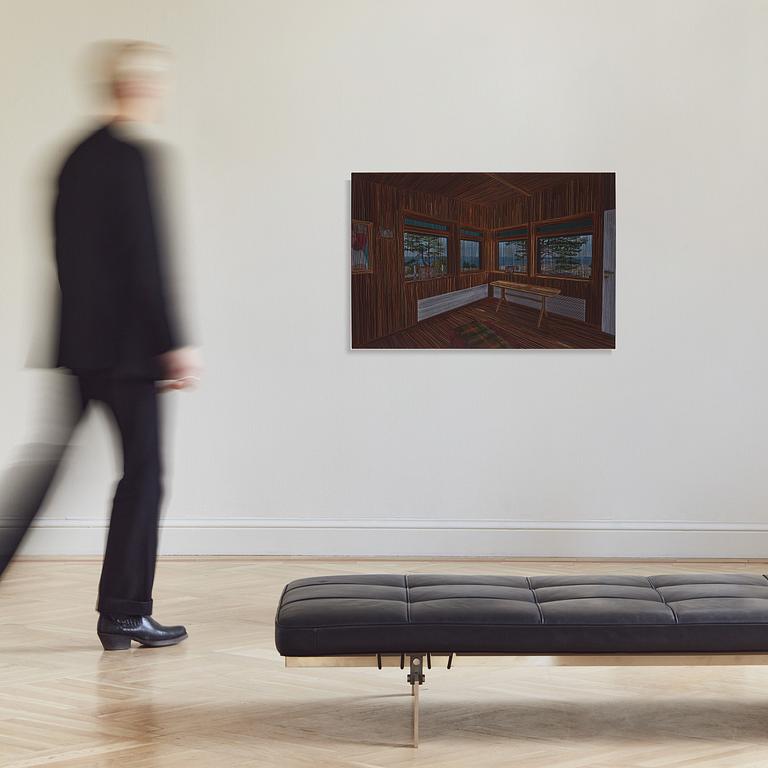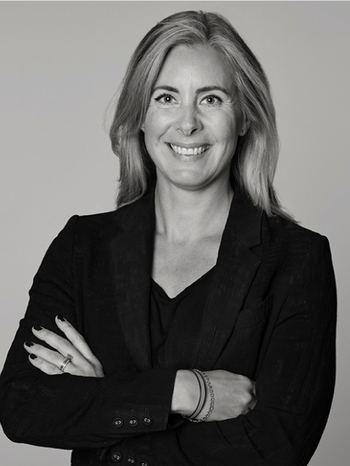Thomas Broomé
'The Loosely Tied Cloth'
Signed Broomé and dated 2012 verso. Acrylic on canvas 70.5 x 105.5 cm.
Alkuperä - Provenienssi
Galleri Magnus Karlsson, Stockholm.
Näyttelyt
Galleri Magnus Karlsson, Stockholm, 'Thomas Broomé, The Guest', 19 April - 20 May 2012.
Muut tiedot
Thomas Broomé (b. 1971 in Malmö) is currently based in Stockholm and is represented by Galleri Magnus Karlsson. The auction's painting ‘The Loosely Tied Cloth' was exhibited at the gallery in 2012 in the exhibition ‘The Guest’.
Anders Olofsson reviewed Broomé's exhibition ‘The Guest’ at Galleri Magnus Karlsson in May 2012 on www.konsten.net.
‘Thomas Broomé's new exhibition has a very special background. In the summer of 2011 he was the first visual artist to receive The Bergman Estate on Fårö Foundation grant, which gave him the opportunity to spend three months in and around Ingmar Bergman's house on Fårö. For Broomé, who has previously worked with Ingmar Bergman's film art as a model, the new project has offered unique opportunities to delve deeper into both our personal and collective relationship with the great filmmaker.
It would have been tempting to simply spin on Bergman's rich set of motifs and characters, but Broomé has instead chosen to focus on the man behind the work, on the unique world that he built on Fårö, and which ultimately constituted his entire universe where film art and life were intertwined into one whole. A significant part of the exhibition focuses on the contrast between light and dark, an area in which Bergman himself excelled (with the help of his genius photographer Sven Nykvist). In an evocative video, with music by Andreas Kleerup, Broomé takes us on a nocturnal walk-through Bergman's house. Lights that go on and off reveal one part of the interior after another, but we can never get a clear picture. We are at the mercy of the artist's choice of angles and pace. The whole that connects our fragmentary experiences is left for us to create.
Something similar applies to the paintings that also make up the exhibition. Broomé has built them up with the help of lines and spaces, which means that they consist (almost) as much of empty space as of color. But viewed from an appropriate distance, they appear as dense entities, reflecting a suggestive semi-darkness. From this point of view, Ingmar Bergman's world appears to be a mystery as great as it is genuine, and we are allowed to remain in that feeling long after we have left the exhibition space. In the entrance stands a collection of lamps, presumably those used to light and darken the video work. In a group, surrounded by daylight, they seem matter of fact and prosaic. Yet we know how little they have been able to penetrate the enchantment of the Bergman House. Thomas Broomé's cultural achievement thus consists of recovering something of the immediate power of suggestion that surrounds Ingmar Bergman, and which column meters of research and commentary have to some extent institutionalized to the point of museum-ness. It is a stiff achievement.’
Thomas Broomé's work is well represented and can be found at Moderna Museet, Stockholm, Göteborgs Konstmuseum, Borås Konstmuseum, Statens Konstråd and in several municipalities and county councils.


















































